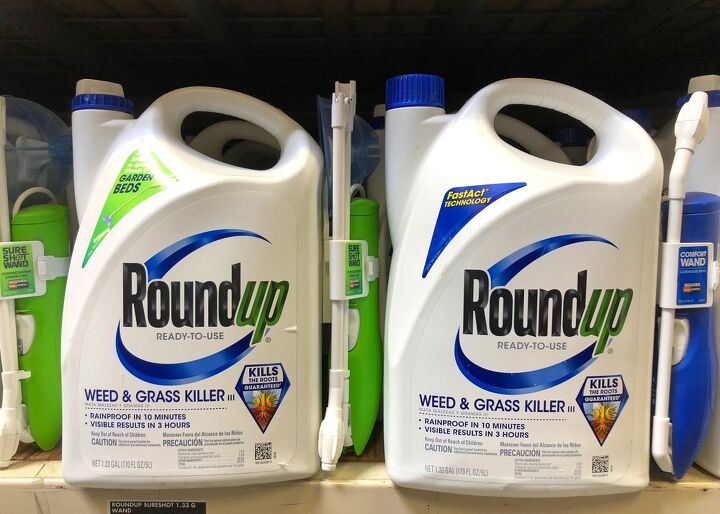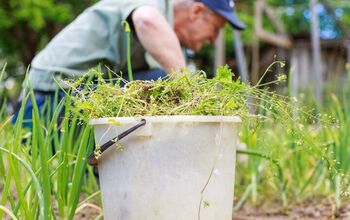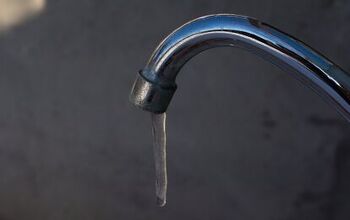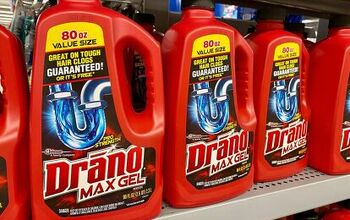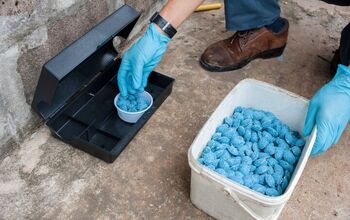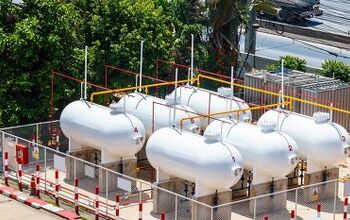How Long Does Roundup Take To Work?

Weeds find a way of popping out of the tiniest cracks around your home, even if you have a small yard. If you are getting your home ready for guests, you might try pulling weeds in order to have the area looking its best. You will, however, quickly find weed pulling can be back-breaking work. This is where products like Roundup weed killer can come in handy. But how long does it take for Roundup to work?
Roundup, and its active ingredient Glyphosate, begin working to kill plants as soon as it is sprayed. Within 30 minutes, it will become waterproof and safe for pets and people to be around while it starts killing the weeds. The spray will begin to show visible results within 2 to 12 hours. Roundup reaches the roots system and completely kills the plant within 7 to 14 days of the initial spray.
Roundup can be a real-time and energy saver for those who have pesky weeds that never stop popping up. In order to know when you need to spray Roundup for you to have the desired results in time, you need to better understand how Roundup works. Once you understand how Roundup kills weeds and how long it takes to eliminate them fully, you will be fully armed and equipped to have a weed-free zone moving forward.
How Does Roundup Kill Plants?
Roundup is a non-selective herbicide, which is important for those unfamiliar with the product to note. This means it does not differentiate what types of plants it attacks. If you spray a plant, it will likely kill most of the green growth it comes in contact with. There are specific types of Roundup spray that target certain plants, but it is important to note that you need to be careful where you spray this herbicide, as it can kill more than just weeds.
The active ingredient in Roundup is Glyphosate. This herbicide prevents plants from creating proteins that help it grow. It quickly works its way into the plant, and even becomes waterproof within 30 minutes. It works quickly, but it takes time for the glyphosate to work its way into the roots of the plant. This is why you may notice the plant slowly losing its strength before it fully shrivels up and dies.
When Will You First Start Noticing Results?
The Glyphosate begins working immediately, and you will start to notice its results quickly. Once you spray Roundup weed killer you can expect to see some visible initial results as soon as 2 hours after the spray, and most likely within the first 12 hours of application.
The first signs you will notice are the plant starting to yellow, or wilt. It might look as though it has been starved of water for some time. If you see these signs, this means the Roundup is working its way into the plant.
How Long Does It Take For Roundup To Reach Plant Roots?
In order for Roundup to completely kill the plant, it will need to reach the roots. Once the Glyphosate in the Roundup can successfully reach and take over the roots, the plant will die. It takes Roundup between 7 and 14 days to completely kill your weeds. This means that by the end of two weeks the weed should be completely shrieked up and dead, including the roots underneath the surface.
Additionally, when the roots are completely destroyed there is no chance that the plant will come back. This does not mean that a plant just like it won’t replace it in due time. That is the nature of weeds – they are resilient with the ability to multiply quickly.
Factors That Can Impact How Quickly Roundup Work
Active vs. Dormant Plants
Roundup works by penetrating a plant during photosynthesis. This means a plant must be “active” in order for the roundup to work. Most plants are active, but it is fairly easy to tell the difference. As a basic rule of thumb, if the plant is growing, and green (or another vibrant color), then it is likely active, and undergoing daily photosynthesis.
Plant Size And Strength
There is truth behind the saying “some are tougher than others.” Some weeds will shrivel up and die in record time. Others are larger and stronger. This means it will take longer to break them down. It will also take more work (and time) for the herbicide to reach the root structure. If you notice some weeds are dying off, but not others, be sure you wait the full 2 weeks before you get worried.
What Time Of Day It Was Sprayed
Since the herbicide relies on photosynthesis, you should make sure you spray Roundup during the day. If you spray at night, the herbicide could be less effective in finding its way into the plant. It may, at the very least, slow down the process. As a rule of thumb, spray during the day when there is at least another hour of daylight.
Weather
There are certain types of weather that are not ideal for spraying Roundup. Very hot days and very windy days can weaken the spray. If the herbicide dries before it has a chance to lock into and penetrate the plant, it is less likely to be effective. Try not to spray when it is windy or very hot. Believe it or not, weeds undergo photosynthesis even on cloudy dark days. Therefore, you can spray when it is cloudy, but ensure it isn’t likely to rain in the process.
Dry vs. Wet Plants
The ideal conditions for spraying your weeds with Roundup are dry and calm. This means you should avoid spraying first thing in the morning when there is a high chance of wet lawn from morning dew. You should also avoid spraying if it is foggy, raining, or likely to rain.
The good news is it doesn’t matter if it rains much later in the day. You really only need to make sure it is dry when you pray, and for the immediate time afterward. If it rains later in the day, don’t fear, as the spray becomes waterproof after a half hour.
Wrapping Up How Long It Takes For Roundup To Work
Roundup is an herbicide spray that will begin to show visual signs that it is working as soon as two hours after its application. Most plants should begin to yellow or wither within the first 12 hours. The spray takes longer to reach the roots. It can take upwards of 7 days to two weeks before the herbicide reaches and kills the roots, and therefore the entire plant.
Several factors can affect how quickly and effectively Roundup works. Make sure you spray when the weeds are dry, and on pleasant days that are not too hot or windy. Ensure the plant is active, not dormant. Remember that some weeds are stronger than others and may take more time to react to the herbicide.

Tom Gaffey is an expert writer who currently resides in Washington D.C. Tom has a passion for real estate and home improvement writing, as well as travel and lifestyle writing. He lived the last twelve years in Hawaii where he worked closely with luxury resorts and event planners, mastering his knowledge of aesthetics and luxury products. This is where he found his passion for home improvement and a keen interest in DIY projects. Currently, Tom resides in Washington D.C, and also working on his debut fiction novel.
More by Tom Gaffey



